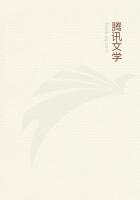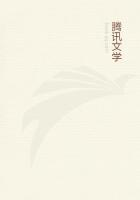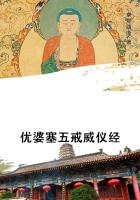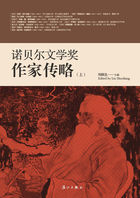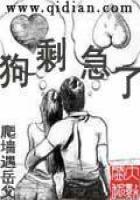A healthy democracy is indeed a training in judgment and self-control as applied to political action; and just as a fireman is at home on trembling ladders and amidst choking fumes, so the free citizen learns to keep his head amid the contending passions and opinions of a "fierce democratic." Having passed safely through many disturbances, he has acquired a confidence in cool judgment and in the underlying stability of things impossible to men who, living under a stricter control, have had no such education.He knows well how to discount superficial sentiment and "the spawn of the press on the gossip of the hour." It is, then, the nature of ordered freedom to train veterans of politics, secure against the wild impulses of a rabble梥uch as made havoc in Paris at the close of the Franco-Prussian war梐nd in modern times, when power cannot be kept away from the people, such a training is the main guaranty of social stability.
Is it not apparent to judicious observers that our tough-fibred, loose-jointed society takes agitation more safely than the more rigid structures of Europe?
Nor is it merely in politics that this is true, for it is the whole tendency of a free system to train men to stand on their own feet and resist the rush.In a fixed order, with little opening for initiative or differentiated development, they scarcely realize themselves as distinct and self-directing individuals, and from them one may expect the traits of Le Bon's foules; hardly from the shrewd farmers and mechanics of American democracy.
It looks at first sight as if, because of their dense humanity, the great cities in which the majority of the population are apparently to live must tend to a mob like state of mind; but except in so far as cities attract the worse elements of the people this is probably not the case.Mob phenomena generally come from crowd excitement ensuing upon a sluggish habit of life and serving as an outlet to the passions which such a life stores up.We find the mob and the mob-like religious revival in the back counties rather than among the cheerful and animated people that throng the open places of New York or Chicago.
Moreover, it is hardly true that "the multitude is always in the wrong"; and conclusions may be no less sound and vital for being reached under a certain exaltation of popular enthusiasm.The individual engaged in private affairs and without the thrill of the common life is not more apt to be at the height of his mental being than the man in the crow~l.A mingling of these influences seems to produce the best results, and the highest rationality, while it involves much plodding thought in its preparation, is likely to come to definite consciousness and expression in moments of some excitement.As it is the common experience of artists, poets and saints that their best achievements are the outcome of long brood)i~g culminating in a kind of ecstasy, so the clearest notes of democracy may be struck in times of exaltation like that which, in the Northern United States, followed the atta.k on Fort Sumter.The impulsiveness which marks pOplilar feeling may express some brutal or trivial phase of human nature, or some profound moral intuition, the only definite test being the persistence of the sentiment which thus comes to light; and if it proves to have the lasting warrant of the general conscience it may be one of those voices of the people in which posterity will discover the voice of God.
The view that the crowd is irrational and degenerate is characteristic of an intricate society where reading has largely taken the place of assembly as a stimulus to thought.In primitive times the social excitement of religious and other festivals represented the higher life; as it still does in backwoods communities, and to sluggish temperaments everywhere.Even in the towns our higher sentiments are largely formed in social meetings of one sort or another, accompanied by music, acting, dancing or speech-making, which draw one out the more solitary currents of his thought and bring him into livelier unity with his fellows.
There is really no solid basis in fact or theory for the view that established democracy is the rule of an irresponsible crowd.If not true of America, it fails as a general principle;and no authoritative observer has found it to be the case here.Those who hold the crowd-theory seem to be chiefly writers, whether French or not, who generalize from the history of France.Without attempting any discussion of this, I may suggest one or two points that we are perhaps apt to overlook.
It is, for one thing, by no means clear that French democracy has shown itself to lack the power of self-control and deliberate progress.Its difficulties梩he presence of ancient class divisions, of inevitable militarism, and the like梙ave been immeasurably greater than ours, and its spirit one with which we do not readily sympathize.France, I suppose, is little understood in England or the United States, and we probably get our views too much from a school of French writers whose zeal to correct her faults may tend to exaggerate them.The more notorious excesses of the French or Parisian populace梥uch as are real and not a fiction of hostile critics梥eem to have sprung from that exercise of power without training inevitable in a country where democracy had to come by revolution.And, again, a certain tendency to act in masses, and lack of vigorous local and private initiative, which appears to characterize France, is much older than the Revolution, and seems due partly to race traits and partly to such historical conditions as the centralized structure inherited from absolute monarchy:
EndnotesSeipio Sighele, La folla delinquente.
French translation La foule criminelle.Gustave Le Bon, Psychologie des foules.English translation The Crowd.
The whole subject, including the question of "prophylactics" against the mob-mind' is well diseussed in Professor E.A.Ross's Social Psychology Whately in his note to Bacon's essay on Discourse.Attributed to the Earl of Roscommon.
See Bartlett's Familiar Quotations.
Sir Thomas Browne characteristically describes the multitude as "that numerous piece of monstrosity, which, taken asunder, seem men, and the reasonable creatures of God, but confused together, make but one great beast, and a monstrosity more prodigious than Hydra." Religio Medici, part ii, sec.1.This is the very man that urged the burning of witches after the multitude was ready to give it up.

